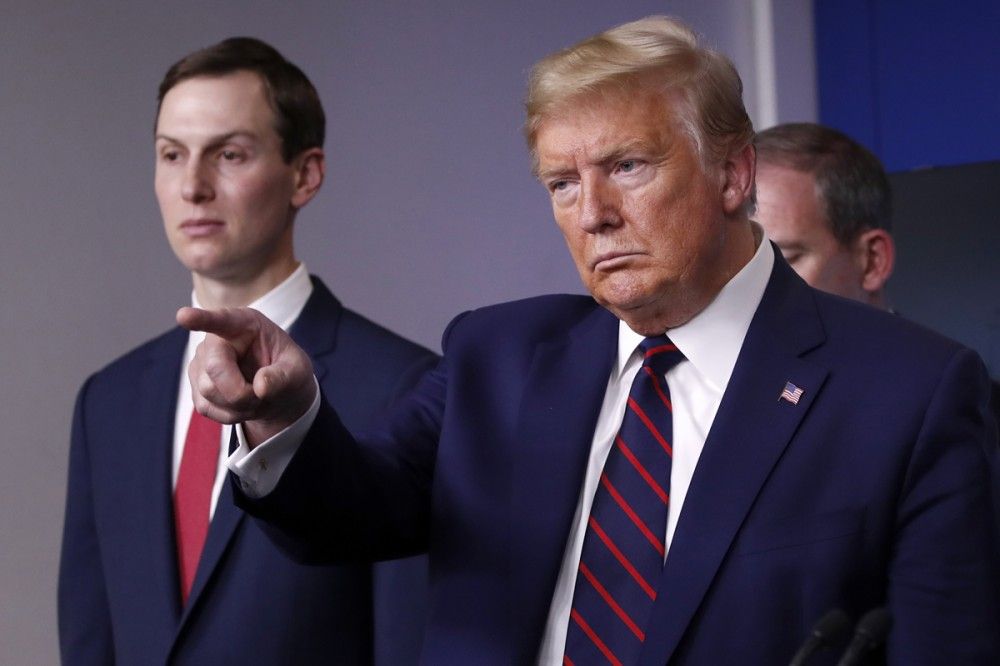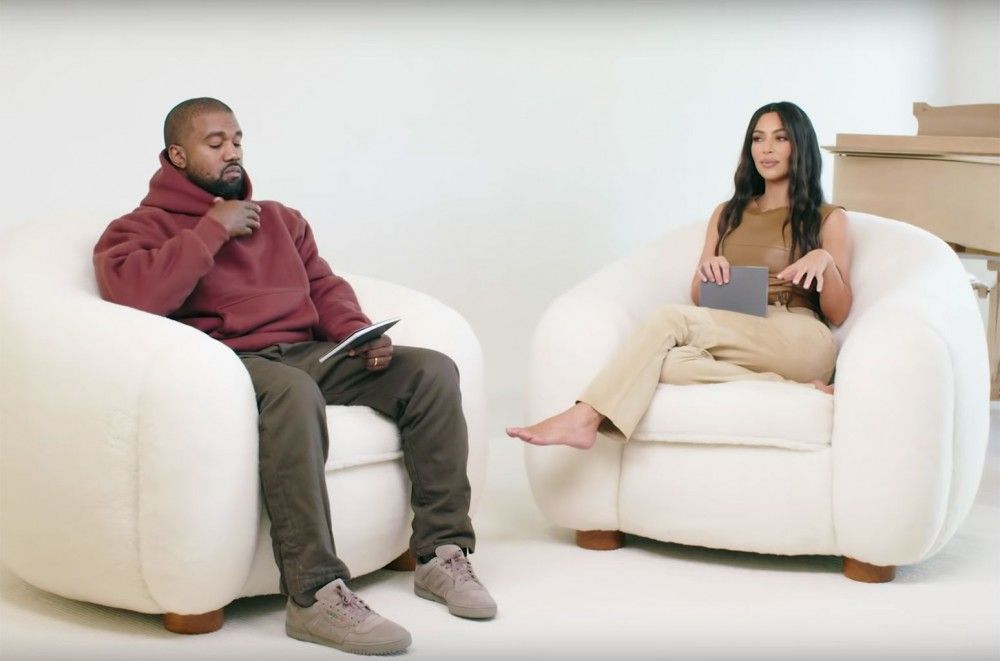
As Trump Bashes China, His Administration Pays Millions to a Consulting Firm Used by the Chinese Government
President Trump and his allies have settled on a new strategy for defending their weak response to the novel pandemic: Attack .
On Tuesday, that strategy took the form of Trump’s announcement that he would freeze funding for the World Health Organization. At a White House press conference, Trump accused the WHO of being “very China-centric” and of going soft on the Chinese communist government for its initial response to the COVID-19 outbreak in Hubei Province.
The WHO announcement came amidst a blitz of China-focused attacks by the president, administration officials, and surrogates like Jr. Trump’s allies have suddenly taken great interest in China’s abominable record on human rights and press freedoms even as Trump himself has done little to advance civil liberties and human rights at home or abroad. And Trump’s reelection campaign has put China front and center as it raises money and tries to damage former Vice President Joe Biden, the presumptive Democratic nominee.
But while the WHO — which will continue to play a key role helping governments respond to the pandemic — got its American funding halted for allegedly being too soft on China, the Trump administration has taken a very different approach to McKinsey & Company, a consulting firm that isn’t just “soft” on China but has played a major role in the Chinese government’s economic growth and global ambitions. As recent news investigations have revealed, McKinsey worked for dozens of state-owned companies in China and promoted China’s multibillion-dollar Belt-and-Road infrastructure project.
Despite McKinsey’s coziness with the Chinese government, the Trump administration has signed multiple contracts with McKinsey in recent weeks worth as much as $19 million to assist the coronavirus response effort. According to government contracting records, McKinsey’s D.C. office has a contract worth up to $6.8 million with the Department of Health and Human Services and one with the Department of Veterans Affairs worth up to $12 million.
Politico reported this month that , the president’s son-in-law and senior adviser, was working alongside “a suite of McKinsey consultants” on his “behind-the-scenes” coronavirus response group. One of Kushner’s projects, according to Politico, is the possible creation of a “national coronavirus surveillance system to allow the government a near real-time view of where patients are seeking treatment and for what, and whether hospitals can accommodate them.” (A White House spokesman said there were no ongoing efforts to create a national coronavirus surveillance program.)
Founded in 1926, McKinsey & Company is one of the world’s leading corporate consulting firms. But its business practices and choice of clients have faced scrutiny in recent years. A 2018 New York Times investigation revealed McKinsey’s work in countries with authoritarian and anti-democratic governments such as Russia, Ukraine, Saudi Arabia, and Turkey. Some of McKinsey’s most prominent clients are Chinese state-owned companies — companies controlled, in other words, by the same government the Trump White House and Trump campaign have now made their target.
The Times reported that McKinsey had advised at least 22 of the 100 largest Chinese state-owned companies. An archived version of McKinsey Greater China’s website said 30 percent of its clients were state-owned enterprises that operated in sectors “ranging from oil and gas, to technology and telecommunications, to banking and insurance.” The site adds, “We’ve advised several state-run companies on their globalization plans, from developing their strategy, to screening and negotiating with overseas acquisition targets, to managing the thorny process of integrating acquired companies with radically different corporate cultures into the parent company.”
One of McKinsey’s clients, the Times found, helped construct artificial islands in the South China Sea that became a geopolitical flashpoint between the American and Chinese governments. McKinsey was a prominent supporter of China’s massive Belt and Road Initiative, a hugely ambitious infrastructure project that would expand the country’s footprint across multiple continents and assert its place as a global economic power. The Times reported that McKinsey’s internal research firm churned out reports in favor of the Belt and Road Initiative that were covered in Chinese state-owned media. Nine of the 20 biggest contractors working on Belt-and-Road, the Times said, had been at one point McKinsey clients. “The world is waiting for the ‘One Belt, One Road’ grand blueprint to move from dream to reality,” a McKinsey managing partner and several colleagues wrote in a report published in 2015.
According to the Times, McKinsey even held a corporate retreat in Kashgar, China, located a few miles from one of the many internment camps created by the Chinese government to imprison an estimated 1 million Muslim Uighurs. In response to the Times‘ reporting, McKinsey vowed to “be more thoughtful” about future choices for where its hold retreats, but said the firm “fundamentally disagreed with the assertion that our colleagues in Southeast Asia, China, Eastern Europe, and the Middle East should not be serving clients where we have a demonstrated record of making a positive difference in the countries where they live, and on behalf of their fellow citizens.”
The Trump administration is hardly the first to turn to McKinsey for help. President Obama hired multiple McKinsey employees to fill positions in his administration. The firm held contracts with numerous federal agencies during the Bush and Obama presidencies. (One contract with Immigration and Customs Enforcement, signed under Obama’s watch and used to carry out Trump’s draconian immigration agenda, has come under intense criticism.)
But Bush and Obama committed to maintain U.S. funding for the World Health Organization during their presidencies. Neither threatened to zero out funding for the WHO as Trump has now done, nor singled out China for blame in the middle of a historic pandemic.
A White House spokesman did not respond to questions about McKinsey’s contacts and whether the administration would continue to rely on McKinsey’s help to respond to the pandemic given the firm’s deep ties to China. The spokesman only sent this statement: “The only McKinsey personnel we are aware of are a handful of volunteers at FEMA and the Department of Health and Human Services, none of whom are members of Jared Kushner’s team.” The spokesman said further questions should be sent to HHS and FEMA. Neither agency responded to requests for comment.
McKinsey & Company did not respond to a request for comment.



